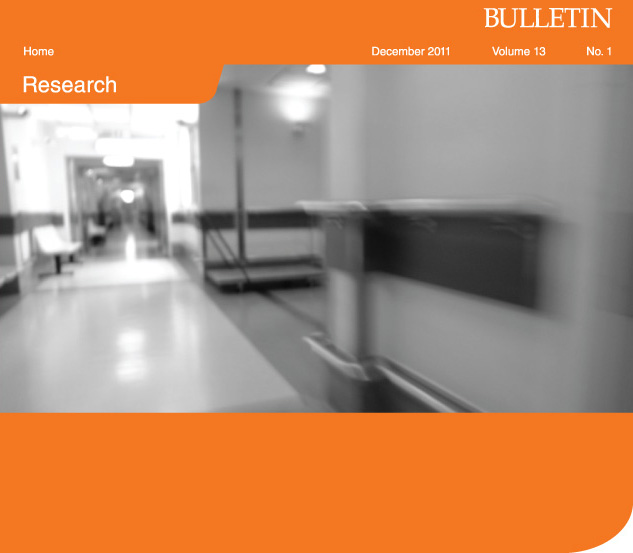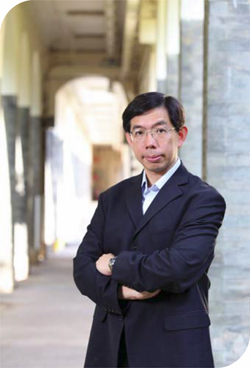
|
Between 1,000 and 3,000 Hong Kong people are estimated to develop psychosis for the first time each year, and for many the outlook is grim. They are usually diagnosed long after the disease has taken a firm hold, they receive medication but little other support, and they face discrimination and misunderstanding in the community, often with tragic consequences. Professor Eric Chen of the Department of Psychiatry is leader of the five-year Jockey Club Early Psychosis (JCEP) Project, which received $68 million from the Hong Kong Jockey Club Charities Trust in 2009 to improve the outcome of psychotic patients in collaboration with the Hospital Authority, Caritas Social Services and Mental Health Association of Hong Kong. He has seen how things can go so horribly wrong. A few years ago he was involved in a case where a teenage girl was identified as psychotic, but her parents refused treatment. They had seen a relative suffer the disease many years before and had clung to an outdated view that treatment was burdensome and had severe side effects. The girl ended up committing suicide. |
|
"From our point of view it was a tragedy, but what really surprised us was the parents' view. They thought it was the best outcome for her. It was really sad, it didn't have to end like that. She could have had a few weeks of treatment and everything could have been different for her," he says. Changing attitudes Fear and misunderstanding of the disease are not uncommon and have affected the speed in which patients receive treatment. A survey of 1,000 people conducted by the project in 2009 found many people mixed up psychosis with anxiety and stress, discriminated against patients especially in the workplace, and were mistrustful of them. "Patients have been at a disadvantage in terms of access to health care. Together with the complexity of the disorder, it's been very challenging to fight for a good outcome," he says. The project is hoping to change both the perceptions and treatment. It is aimed at adult patients over 25 years old (youths and young adults already receive intervention), since psychosis usually appears for the first time in people aged 15–45. Publicity and awareness-raising campaigns have been conducted in the media and at district level, targeting friends and family of potential patients and the general public with the message that psychotics suffer delusions and hallucinations, this is a medical condition like any other medical condition, people should seek early assessment, and there are now good medical and psychological treatments that can offer a promising outcome. |
Training the front line People in occupations that are likely to encounter psychotic patients are also being offered training on how to handle them. This includes police officers and social workers, and also teachers and housing estate workers who were initially reluctant to agree to workshops. Two incidents over the past two years convinced them they needed more information – one involving a boy committing suicide at school and the other a psychotic patient who killed a housing estate staff member. "Our main approach is to reduce the delay in treating psychosis through gatekeepers and more public awareness,"Professor Chen says. Over 2,000 participants have joined these workshops in the past two years. "Once somebody has developed the disorder, the first few years are considered to be particularly important because whatever happens then is likely to have a lasting effect." |
 Professor Eric Chen |
||
Greater support to patients The patients themselves are being offered psycho-social intervention in addition to medical treatment. About 650 patients in the project will be offered specialized early psychosis case management with Intervention Officers who will follow each case closely and prioritize further action. They will use such approaches as cognitive behaviour and life coaching and work with the patients' psychiatrists to monitor their progress. Another 350 patients are being divided into three groups for a research study to determine the impacts of intervention and the costs. One group receives four years of intervention, a second group receives two years and the third group is the control group and receives only the standard medical treatment offered to all patients by the Hospital Authority (the Government recently announced intervention will be made available to all patients, but this will take some time to establish as key workers need to be trained. Staff on the psychosis project are expected to assist in this). Patient outcome will be measured by their functioning in terms of social, occupational and recreational activities. "More acute psychotic symptoms are relatively easy to control with medication. Over a longer period of time, what makes the difference among patients is the degree of functioning," Professor Chen says. And also the reactions of others, hence the importance of raising awareness. "What people think of psychosis affects how patients look at themselves, especially as they recover from their condition," he adds. |
|||
| Back | ||